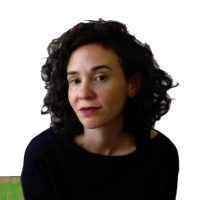After concluding the youth-led research project, YARI, Director of the Youth Development Master’s Program at Rhode Island College, Victoria Restler, sat down to reflect on what educators, mentors and graduate students involved in the project learned from working with youth.
What is your biggest takeaway from your involvement and role in the YARI project?
I am still glowing from our December showcase of the YARI final projects. These youth researchers presented powerfully on critical issues like access to special education services, the impact of race and ethnicity on student-teacher relationships, and necessary supports for emergent bilinguals in our school systems.
I came away inspired by the power of youth to author their own experiences, to study and analyze the world around them, and — even in the midst of a global pandemic with our little zoom boxes — the force and connection of intergenerational community. And like all the other adults in the zoom room, I was taking *notes* on Powerpoint slide design. The presentations were gorgeous!
When we reframe mentorship as partnership, along with shared goals and commitments to justice, we open up possibilities for powerful intergenerational connections, learning and social change.
Mentors were a big part of the YARI project. What do you see as the best approaches to mentorship and supporting youth who are traditionally marginalized and/or have learning differences?
Mentorship is a critical piece of how we grow and learn. We didn’t get to wherever we are on our own! In school and work and life, our growth is often aided by deep relationships with teachers, supervisors, community leaders, family members and others. I know that I am endlessly grateful for the generosity and commitment of my own past and present mentors in art, teaching, research and activism.
There’s lots of wonderful scholarship on best practices for mentoring and as someone invested in out-of-school education, I really appreciate Gretchen Brion-Meisels, Jessica Tseming Fei and Deepa Sriya Vasudevan’s framing of ‘Youth-Adult Partnerships’ in their recent edited volume, At Our Best.
Among the foundational elements of these partnerships, they outline the importance of developing trusting relationships, engaging in activities and practices that center the capacities of both youth and adults, and committing to collective action, wellbeing and outcomes. When we reframe mentorship as partnership, along with shared goals and commitments to justice, we open up possibilities for powerful intergenerational connections, learning and social change.
What kinds of preparation did you do and/or what discussions did you have with the mentors so that they could support and work with the YARI cohort?
Alongside the launch of the YARI project, the mentors—all of whom are current students in Rhode Island College’s Youth Development Master’s Program—participated in a graduate-level semester-long seminar.
In this course, we focused on three areas:
Identity: The course was grounded in an exploration of some of the key theories that shape the YARI project including Intersectionality, Dis/ability Studies Critical Race Theory (DisCrit), and Universal Design for Learning (UDL). Through dialogue and critical writing, the mentors applied these theories to their own personal narratives and to the youth-led research projects.
Research methods: Our introduction to research mirrored the YARI scaffolds designed for youth researchers. The mentors studied the main components of research design and practice such as developing research questions, literature review and some approaches to qualitative data analysis.
Real-time project support: Finally, in the “project support” component of our class, we explored models of intergenerational partnership. Using “Reflective Practice Playing Cards,” a game-based method for fieldwork reflection created by the Youth Development @ RIC team, mentors shared stories from their work with YARI researchers in the form of questions, “dilemmas of practice” and celebrations. Through these stories, we offered support for real-time challenges and learned together as a community.
But there is another research tradition rooted in critical race theory, intersectional feminism and indigenous scholarship that centers the deep knowledge people hold about their lives and experiences. This approach grows from the belief that directly-affected communities and individuals must be at the heart of shaping research design, analysis and action. This is the liberatory research lineage that we hope to welcome young people into, and as evidenced by the December YARI showcase, this group is taking up the mantle.
Victoria's Resource and Reading List
- At Our Best: Building Youth-Adult Partnerships in Out-of-School Time Settings, edited by Gretchen Brion-Meisels, Jessica Tseming Fei and Deepa Sriya Vasudevan.
- DisCrit—Disability Studies and Critical Race Theory in Education, Edited by David Connor, Beth Ferri and Subini Annamma
- Intersectionality Matters, a podcast hosted by Kimberlé Crenshaw, critical race scholar, activist and originator of the theory of intersectionality
- Middle-High School Lesson on Universal Design for Learning (easily adapted for higher ed), by Learning for Justice
Anything else you'd like educators, partners and mentors to know if they are embarking on a youth-led research study?
I am a pedagogy nerd—I love to read and think and experiment with new ways of teaching and building community in educational spaces. And one thing that I’ve been struck by in the design of this project is that what works well for young people often works well for adults too.
When we design projects, meetings, documents and learning spaces around the principles of Universal Design for Learning with an explicit focus on identity, relationships and justice, we all thrive. This can look like offering multiple modalities for learning and communication, setting up and revisiting community agreements to co-construct brave spaces, making room for people to share their cultures and stories and always prioritizing relational connections and joy. As soon as we’re back face-to-face: snacks (the secret sauce for all ages)!

Victoria Restler is an interdisciplinary artist, educator and scholar. She is an Assistant Professor of Educational Studies at Rhode Island College where she also directs the Youth Development Master’s Program.